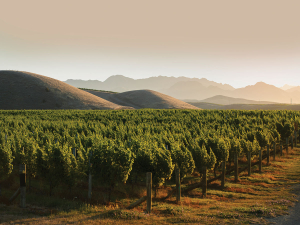OPINION: The news could not have been more concerning – an industry member deliberately and illegally imported grapevines into New Zealand, and then grew those vines in one of our major winegrowing regions, thereby threatening the livelihoods of friends, neighbours, and colleagues in the industry, and potentially the wider primary sector.
It is hardly believable but that is the exact scenario revealed in a recent court case.
The only good news in this case was that the deception was discovered because other industry members became aware of the situation and ensured the authorities were notified. The plants were identified and destroyed, and we are fortunate that no new diseases or pests were introduced into the country.
Also pleasing to see was the seriousness with which the Ministry for Primary Industries viewed the matter. Their biosecurity team swung promptly into action, they destroyed the plants, and they prosecuted. Those are good outcomes; they were needed to protect our industry’s biosecurity, and that of the country as a whole.
Biosecurity risk ranks high on the industry, and New Zealand Winegrowers (NZW), risk registers. As a new world country we are fortunate not be exposed to a numbers of pests and diseases that plague colleagues in other countries. Prominent examples include the likes of Pierce’s disease and the brown marmorated stink bug (BMSB), both of which are high on our most unwanted list.
Protecting the biosecurity status of the industry is a top priority for NZW. In 2017 we became a signatory to the Government- Industry Agreement (GIA) Deed, to partner with the government in postborder biosecurity readiness and response decision-making. We have two full time staff working solely on biosecurity matters, while Dr Edwin Massey, our General Manager Sustainability, has a strong biosecurity background.
As a GIA signatory we work very closely on all aspects of biosecurity with the government and other industry bodies. Sophie Badland, our Biosecurity & Emergency Response Manager, chairs both the BMSB Council and the Xylella Action Group. We have a dedicated biosecurity levy in place (currently zero rated) should we need to fund our share of a biosecurity response costing NZW more than $1 million, while we have a dedicated biosecurity reserve for smaller responses. And high on our requests to the incoming government was funding for the new national plant quarantine facility.
On-vineyard biosecurity is just as important as the protections at the border. If there is a biosecurity issue, we need to know where the vineyards are that may be impacted – hence why we ask members to complete the Vineyard Biosecurity Register each year. In 2020 we introduced biosecurity planning into Sustainable Winegrowing New Zealand (SWNZ) and for the 2025/26 season having a biosecurity plan will be a compulsory component of SWNZ accreditation. We, and you, need to be ready if there is an incursion; that’s what biosecurity plans are all about.
All this activity reflects the risk to the industry, its 42,000 hectares of vineyards, and all its other investments, from an unwanted biosecurity incursion. If new pests or diseases evade the biosecurity measures in place at our border and around vineyards, this would potentially land growers and wineries with hugely increased costs, lower production, and/or lower wine quality. This is a situation we need to avoid if at all possible.
The recent court case is a timely reminder of the risks to the industry from any biosecurity incursion. It highlights the need for robust border protections and sound planning on vineyards. Even more fundamentally though, it reinforces the role that every industry member needs to play in protecting the biosecurity status of the industry. Decisions made by individuals can potentially impact the whole industry, so make sure you and your team make good biosecurity decisions.
Remember: Catch it. Snap it. Report it.
Philip Gregan is Chief Executive of NZW













